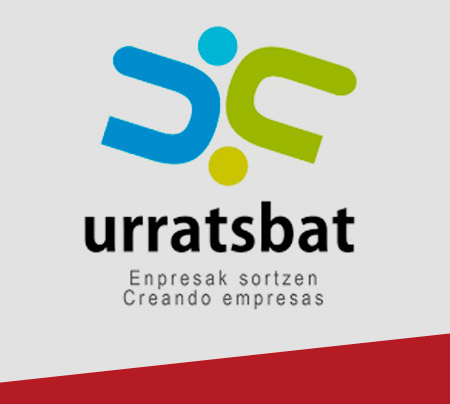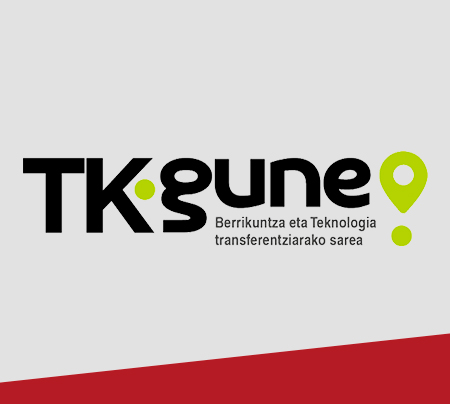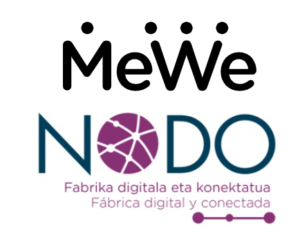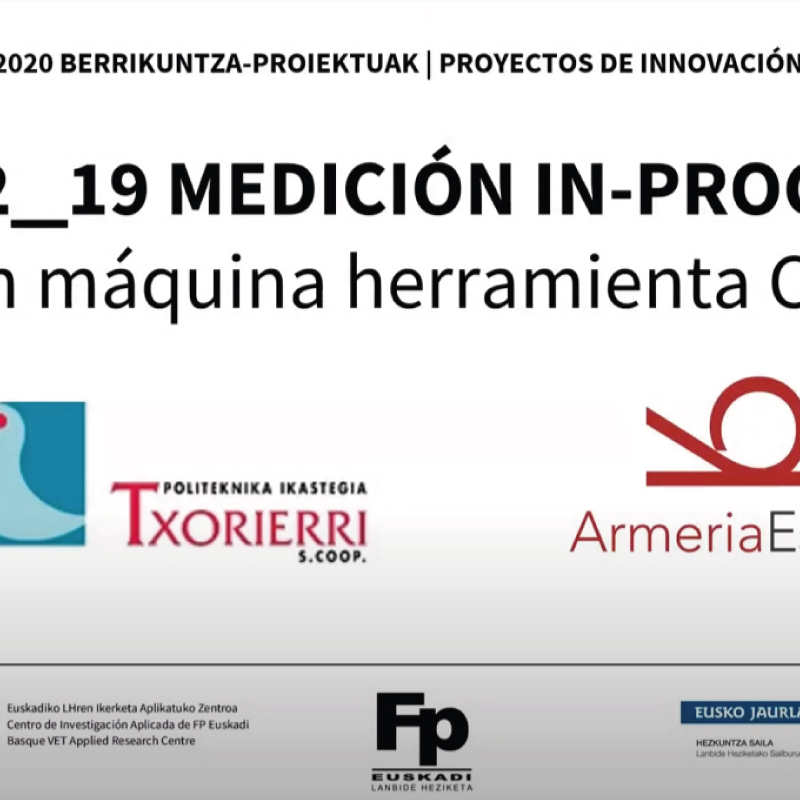In order for the education system as a whole and, our school in particular to progress it is essential to promote innovation in all areas, not only the technological one. To do that it is necessary to implement constant monitorization. The IDEAS FOLDER is set within this context of monitorization of new ideas.
The process begins with the collection of ideas for innovation, improvement or change. Any person employed in Armeria Eskola can propose such ideas through a form. The data of the form are collected by the Innovation Director, who later gets in touch with those who proposed the ideas and asks them to clarify and develop them. The ideas developed are stored in the ideas corner and they are analyzed with the original ideas proponents. It is assessed if such ideas align with the strategic goals of the school and if the school has experts to put them into practice. Finally, the idea that were selected are included in a pre-project portfolio so that the Strategy Forum can decide later how to incorporate them into the school strategy plan and the yearly school plans.
This project combines two technologies: the digital twin and the interactive immersion classroom. Its aim is to implement the digital twin technology in interactive immersion spaces.
The Digital Twin technology has gone through a remarkable deveopment due to:
- The fact that it offers the possibility of previous testing before starting investing in a project
- Its ability to provide specific installation testing
- Its ability to provide supervision of how things work.
- The fact that it allows for prediction of malfunctioning areas and the analysis of their causes.
- The fact that it allows for interaction with the installation.
- Its ability to facilitate training
To simulate the mechanical parts of a machine or an installation, we will use SIEMENS NX and Mechatronic Concept Design (MCD) software to automate the TIA Portal program and PLCSIM advanced to combine the software mentioned.
For a virtual immersion as realistic as possible we will use three interactive screens DIGALIX and for an enhanced software experience we will use SIEMENS NX design VR software.
This project will enable students of the Industrial Mechatronics course and the Automation and Industrial Robotics course to work on these technologies and enrich their learning experience.
The autonomous wheelchair is a project aimed at children from ASPACE organization, who regularly use wheelchairs. The objective of the project, developed in cooperation by Design and Electronics departments, is the development of an autonomous platform that will allow these children to move independently.
The platform will be designed fora ny kind of wheelchair and it will be provided with a microcontroller in order to allow different operating modes: automatic mode, joystick operation, etc.
The project will also be used to carry out a challenge with the electronics students.
The aim of this node is to encourage vocational education training centres to participate in the latest trends in the field of advanced manufacturing to adapt knowledge to the current and future needs of the Basque business fabric. For this purpose, this node carries out the technological surveillance necessary to create a map of priorities, which they send to the VET centres. This study is the basis for identifying possible projects and promoting the implementation of new projects. In addition to the possible projects, these nodes are spaces in which synergies and collaborations between centres emerge.
The advanced manufacturing node is one of the network nodes underway within the Basque Innovation System in Vocational Education Training in the Basque Country. Through these network nodes, the innovation strategy is analysed and disseminated to the network of VET centres. This way, the Career Training of Euskadi aligns with the strategic areas of the strategy RIS3 of Intelligent Specialization of Euskadi.
The objective of this node is to involve VET centres in the latest trends in the field of the digital and connected factory, in order to adapt the knowledge to the current and future needs of the Basque business fabric. To this end, this node carries out the technological surveillance necessary to create a map of priorities, which they send to the VET centres. This study is the basis for identifying possible projects and promoting the implementation of new projects. In addition to the possible projects, these nodes are spaces in which synergies and collaborations between centres emerge.
The digital and connected factory node is one of the network nodes that is underway within the Basque Innovation System in Vocational Education Training in the Basque Country. Through these network nodes, the innovation strategy is analysed and disseminated to the network of VET centres. This way, the Career Training of Euskadi aligns with the strategic areas of the strategy RIS3 of Intelligent Specialization of Euskadi.
Urratsbat is an entrepreneurship service directed to both students of cycles and courses of Armeria Eskola and former students. The promoters involved in the program, in addition to having the advice of Armeria Eskola, have their own resources such as an office, workshops, equipment and all the necessary facilities.
Armeria Eskola offers a person responsible for the revitalization and mentoring of business projects, who will advise the promoter in the process of creating their company and collaborate with them.

The main objective of the Tkgune service is to facilitate the transfer of two-way knowledge between centres and professional training companies. Two are the expected results:
- Develop projects in collaboration with companies to respond to their innovation needs and improve their competitiveness, using for it the resources of the centres (facilities, equipment, people, accumulated knowledge…). In this way, companies use the knowledge accumulated by the centres.
- Adaptation and transfer for teaching purposes of knowledge acquired in the development of projects. Thus, bringing the business reality closer to the centres of Vocational Training.
The services offered by Armeria Eskola cover the following areas:
- Micromechanics and Advanced Manufacturing.
- Automatic systems, robotics and artificial vision
- Design and 3D printing.
- 3D scanning and reverse engineering
- Metrology

Delta robots are very efficient in different fields of industry (food industry, lightweight parts handling) and they aren’t widely used in vocational training schools. Additionally, in Armeria Eskola we have experience with Siemens equipment as well as in mechanical design and assembling. Making use of our expertise in this matter and of the current technological advances, we have set in motion a project to manufacture a Delta Picker robot.
The aim of this project is to produce a Delta Picker robot using Siemens Motion Control actuators, a S71517TF type PLC, machined or additive manufacturing parts and commercial parts. The design of the robot will be simulated and validated through a digital twin by using 4.0 industry technologies such as RFID readers, visualization system, IoT and embedded safety.
To implement industry 4.0 it is essential to develop intelligent machine-to-machine communication in the production line and in measuring machines. Such is precisely the aim of this project and to reach this target we will use a CNC lathe and a laser measurer.
The machine and the measurer will form an autonomous unit. The part being machined in the lathe will be measured by the laser and these measures will be sent to the lathe to compensate for one time errors.
Industry 4.0 has become the mainstream approach to industrial economy. This term was coined at the beginning of the decade of the 2010s in Germany to give a name to industry digital transformation process, that is now pervasive in all of its areas.
In Armeria Eskola we have installated an integrated cell to develop technologies related to industry 4.0 that simulates production processes. By using this integrated cell, it is possible to engage in learning activities and exploit technologies like artificial vision cameras, RFID tags, RFID readers, IO-Link system intelligent sensors, production management MES software, industrial communications and HMI screens.
Through this Project we will train students to work in advanced industrial environments and to face the challenges of digital transformation.
Intelligent sensors collect and process information where it is generated and function as the eyes and ears of automation. Thanks to IO-Link system, sensors and actuators have become an active part in industrial processes. As senders, they communicate errors and control situations autonomously. As receivers, they collect the signals of their environment and process them. As a result, there is a cost optimization in all the value chain.
Additionally, cibersecurity has become a priority for many companies. Lately cyber attacks have multiplied and companies are incorporated new professional profiles that can detect, prevent, supervise and correct the results of such cyber attacks.
The aim of this project is to design and manufacture intelligent collaborative devices that can interact physically with human beings in a real workplace environment. These devices will exchange information safely through industry 4.0 disruptive technologies like the Internet of Things, cybersecurity or cloud solutions.
Development, design and implementation of the device will be carried out through Siemens technology. The project will include the following sections: electric axes, control displays, people safety, communication and installation launching.
In this project, the virtualization of an industrial process or an industrial machine will be analysed, in order to obtain a generic guide on the virtualization process. To do this, a specific machine will be virtualized, a press, including the steps to be followed in the virtualization process into a generic guide that can be applied to other machines / processes.
In addition to the technological ones, other kinds of implications of the virtualization process will be analysed such as training needs, implications in the organizational structure, interdepartmental collaboration, staff updating, etc.
The technologies involved in this project are: digital twins, cybersecurity, communication protocols, edge cloud computing, ERP.
The robots are widely used in different industrial processes and the future technicians should be trained in the handling of different types of robots. However, the high price and the wide variety of robots on the market, makes it difficult for a vocational school to have a wide variety of robots.
The objective of this project is to design virtual robots that can be handled in any environment. For this, the project will combine the simulation of robots with virtual / augmented reality, generating virtual spaces where students can be trained in the handling of robots without any physical robot.
With this system, the learning process will become easier and more flexible, eliminating the need for physical robots and making it possible to practice different robot models in any environment.
In order to develop the objectives of the Linguistic Project of the school, guarantee and expand the educational offer in Basque, Armeria Eskola implemented a Basque course in the ETHAZI challenges (ETHAZI is the acronym in Basque for High Performance Cycles learning model, organized around collaborative learning based on challenges). The pilot project was carried out in the Telecommunications and Computer System training cycle, and given the success obtained, it is intended to extend it, gradually, to the other training cycles as well.
The project has the support of the Eibar City Council and those in charge of teaching the courses are the municipal Basque Language School and AEK Basque Language School of Eibar. According to the students’ level, two different courses have been implemented, B2 and A1. The first reinforces the technical Basque language: project documents, job interviews, curricula, presentations, etc. For the students in the A1 group it is usually their first relationship with the Basque language, they learn to introduce themselves and take the first steps into the local culture.
The goal is to make the leap to a larger scale in additive manufacturing technology following the strategy of foreign experiences that are achieving successful results on this path. In all these experiences, the plastic sheen is the raw material and a robot is responsible for correctly placing the material in the printing area.
This project aims to experiment with this technology to analyse the possibilities of development it offers, while the faculty involved in the project will acquire the skills and knowledge to be transferred to the classroom. All this will result in benefits of our students and the training they receive.
Following the trends of metrology, this innovation area studies and investigates the measurement carried out in the Machine Tool itself, with the aim of approaching “Zero defects” without releasing the piece.
The current industry is increasingly introducing the metrology of an environment 4.0 in the process. The fact that all the stages of ensuring the quality of a process are integrated has technological difficulties and through this project, its implementation is being studied.
On the other hand, this integration will bring clear benefits for a production line, such as efficiency, productivity improvement, and automatic development of the different stages of the process.
Armeria Eskola’s Industry 4.0 work group aims to analyse how and to what extent the development of industrial technologies 4.0 affects the training offer of the centre. Through this study, we want to see how the competences and capacities of the most demanded professional profiles in our environment are evolving.
The analysis of this work group is coordinated and contrasts with that coming from the network nodes in which we participate in order to adapt our training offer, updating it in contents, facilities and equipment to the new needs of the labour market.
Within the design of mechanical manufacturing, reverse engineering offers multiple possibilities. Armeria Eskola has precision scanners that enable the precise and efficient capture of the dimensions of the object and thus extract the necessary information from the resulting sweep in order to create new designs that have the correct characteristics of appearance and functionality.
The objective of this work group is to analyse the possibilities of development and innovation that the technology in reverse engineering offers to Armeria Eskola both from a formative and service point of view through Tkgune.

